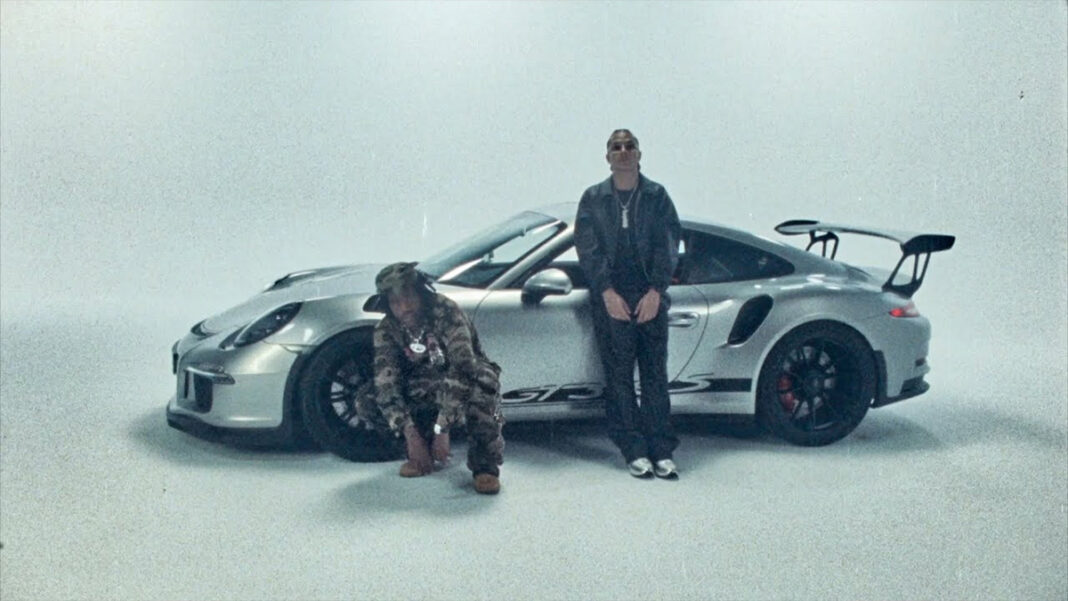I. Late 1990s — Ideal J: blunt impact, already infused with morality
Before launching his solo career, Kery James made his mark within Ideal J, an offshoot of Mafia K’1 Fry, with rap that hit hard, exposed, and unsettled. *Hardcore* landed like a shock: its refrain spun like a street slogan — “On veut du hardcore jusqu’à la mort” (“We want hardcore until death”) — but provocation was never the endgame. It was a way to lift the veil on poverty, excess, and the brutality of daily life. This borderline writing tested the limits: telling reality as it is in order to warn of its dangers. And already, there was more than just insurrection. In *Nuage de fumée*, the voice turns into a cautionary note: “A cloud of smoke holds me back,” “In a single joint I contain my rage,” “A toxic liquid reaches me.” The text becomes instructive without being didactic, aware of the damage, aiming to contain anger instead of being consumed by it. The same tension appears in *L’amour*, where intimacy comes to the surface: “The love of her path scarred me forever.” By the late 1990s, the vocabulary already blended *social violence* and *fragility*: vice, fate, memory, respect. Kery James wasn’t simply provocative; he staged provocation as a way of making space for an emerging ethic.
II. 2000s — Conversion, African sounds, the rise of conscious rap
The shift is clear with *Si c’était à refaire* (2001). Kery James opened the path for conscious rap in France: a pioneer and figurehead of a current where faith, ethics, and responsibility structured the writing. Testimony became duty, punchlines leaned toward maxims: “I swear I still carry the marks of my past.” The musical spectrum widened, with *African sounds* flowing through the tracks, roots resonating as a compass. The narrative left the street map to embrace *origins*, *honor*, *reparation*. The vocabulary expanded: faith, shame, forgiveness, justice, dignity. Where Ideal J denounced, the Kery James of the 2000s guided, proposed, transmitted. He no longer just described the world: he prescribed a way to live in it — and committed himself to it.
III. 2010s — The activist and the big brother: politics, postcolonial issues, responsibility
The 2010s gave rise to an *oratorical*, *mobilizing* voice. Lyrics borrowed the tools of public speech: anaphora, direct address, the lexicon of institutions and history. *Banlieusards* condensed this refusal of fatalism: “We are not doomed to fail,” “I wrote the anthem for the fighters.” *Lettre à la République* attacked the blind spots of national narrative: “The Republic is innocent only in your dreams.” With *L’impasse* — featuring Béné — the “big brother” stance was fully embraced, naming the vicious cycle: “The dead end aka the bad turn of the little brother,” “little brothers replace us in the dead end.” In *Musique nègre*, identity was claimed outright: “Black music,” “Keep your Yes we can.” The vocabulary thickened: *Republic*, *president*, *system*, *merit*, *colonization*, *lineage*, *honor*. The prose stayed sharp and popular, but the grammar of the text now borrowed from the rhetoric of advocacy: to convince, to instruct, to demand responsibility.
IV. 2020s — Le Poète noir: memory, transmission, solemnity
By the 2020s, the center of gravity shifted once more toward *memory* and *heritage*. Anger distilled into solemnity, the line became breath. In *LE POÈTE NOIR*, art declared itself: “Rappers and slammers write marvelously,” the voice claimed itself as vocation: “Black poet, I sing my solitude.” Beyond the studio, his engagement broadened: the stage play *À vif* and the film *Banlieusards* carried the same questions of responsibility, choice, loyalty. It becomes clear why some youthful punchlines are no longer delivered the same way: ethical coherence, transmission, and inner peace now take precedence over excavating old words. This last period gives up nothing; it elevates everything.
Running through these four stages is a single throughline: Kery James has consistently articulated the harshest reality with an ever-rising moral demand. From rap that exposes to rap that proposes, from survival manifestos to a poetics of legacy, the trajectory is clear. It explains why the second half of his career is often compared to Nas in the United States: starting from the streets, ending as a witness, a bridge, and, at times, a sage.


